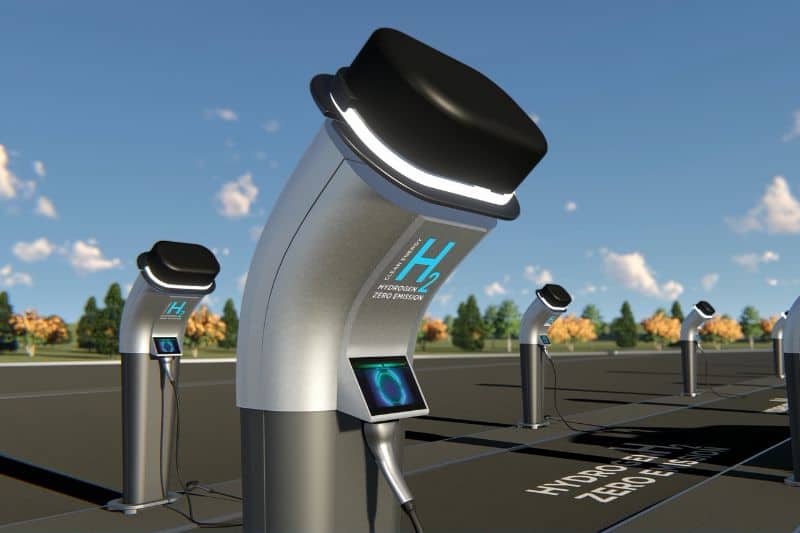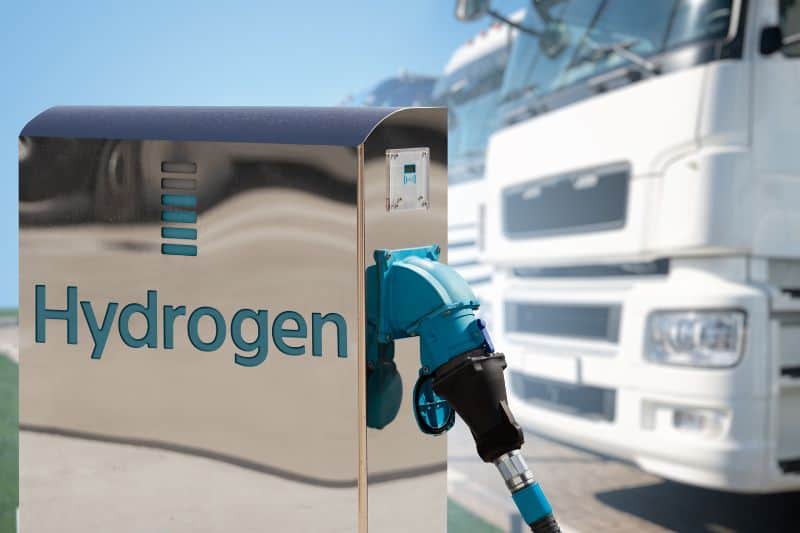The universe consists of a mixture of a vast array of components. Each component has a vital role in the composition of the world. The most abundant components in the universe include hydrogen, nitrogen, and oxygen.
Hydrogen is the most occurring component, taking up 90% of the atoms and 75% of the element mass. This gas plays a greater role in the sustainability of life, but it can also be utilized to generate energy.
Hydrogen exists in almost all plant matter and also occurs naturally in water. Though the sun has a greater percentage of hydrogen gas, it is so light that it virtually disappears from the earth’s surface when conveyed by the sun’s rays. So, to effectively obtain hydrogen gas, it must be harnessed from water, natural gas, or biomass.
Hydrogen is the simplest and lightest of all Earth elements. The hydrogen atom comprises a single proton and a single electron. As such, it is very abundant but doesn’t exist as a separate form of matter.
Instead, it is usually combined with other elements. To separate hydrogen gas from its companion substances takes a lot of effort, but it produces a powerful, nearly clean energy source that can be used in fuel cells to power engines.
One way hydrogen gas is extracted from water is by a technique known as electrolysis, which involves running a high electric current through water to separate hydrogen and oxygen atoms. The electrolysis process, however, is pretty expensive since it involves high energy expenditure.
The energy used to generate electricity in the electrolysis process is harnessed from fossil fuels like oil, natural gas, or coal, but thanks to the emergence of alternative energy sources, the needed energy can also be tapped from renewable energy sources like solar, wind, and hydropower to ensure no greenhouse gas emissions.
Obtaining volumes of hydrogen by this method is still under research to establish a viable method of generating it domestically at a relatively low cost.
Another method of hydrogen gas extraction is steam-methane reforming or steam extraction. This procedure entails the separation of hydrogen atoms in methane from carbon atoms and is currently the preferred technique used to obtain hydrogen gas in vast quantities.
The downside to steam-methane reforming is that it emits large amounts of greenhouse gases like carbon dioxide and carbon monoxide into the atmosphere, which are recipes for global warming.
To obtain electricity from the hydrogen gas, the extracted gas is conveyed to fuel cells, where it combines with oxygen, resulting in a chemical reaction that generates electricity and heat.
The other way of obtaining electricity using hydrogen is burning the gas to power vehicle engines. The byproducts of this chemical reaction are water and carbon, used to produce methane and coal.
Various Uses of Hydrogen

Hydrogen is generated as a byproduct in Chlor-Alkali industries. Earlier, this gas was used partly for non-energy applications, and the balance part was either flared or vented out in the atmosphere. Presently, byproduct hydrogen is utilized for producing chemicals and captive (mainly energy) applications.
But mostly, hydrogen is produced for non-energy applications, e.g., in fertilizer industries and petroleum refineries.
In addition, there have been advancements in utilizing hydrogen for various energy applications. This includes powering small generators, fuel cell buses, three-wheelers, motorcycles, and catalytic combustion systems in both residential and industrial sectors. These innovations have been developed and demonstrated to showcase the diverse potential of hydrogen in various sectors.
Advantages of Hydrogen Energy
As the lightest and simplest element, hydrogen isn’t easy to extract and contain. So, is it really worth the effort?
Well, to answer this question, let’s look at some of the advantages of using hydrogen energy:
1. It’s a Renewable Energy Source and Bountiful in Supply
Hydrogen is a rich source of energy for many reasons, mainly because it’s bountiful in supply. While it may take a lot of resources to harness it, no other energy source is as infinite as hydrogen. That means there is no possibility of it running out like other energy sources.
2. Numerous Sources to Produce Hydrogen Locally
Hydrogen can be produced onsite, where it will be used, or centrally, and then distributed. Also, this gas can be extracted from various sources, including methane, gasoline, biomass, coal, or water. The factors like amounts of pollution, technical challenges, and energy requirements vary depending on the sources used.
3. It is Practically a Clean Energy Source

When hydrogen is burnt to produce fuel, the byproducts are totally safe, which means they have no known side effects. In fact, aeronautical companies use hydrogen as a source of drinking water. After hydrogen is utilized, it is normally converted to drinking water for astronauts on ship or space stations.
4. Hydrogen Energy is Non-toxic
Another advantage of hydrogen is that it is a non-toxic substance, a property that is rare, especially for a fuel source. This means that it is friendly towards the environment and does not cause any harm or destruction to human health.
This aspect makes it preferred compared to other sources of fuel like nuclear energy, natural gas, which are extremely hazardous or daunting to harness safely. It also allows hydrogen to be used in places where other forms of fuel may not be allowed.
5. The Use of Hydrogen Greatly Reduces Pollution
When hydrogen is combined with oxygen in a fuel cell, electricity is produced, which can be used to power vehicles or drive an electric motor as a heat source and for many other uses. When it combines with oxygen, the only byproducts are water and heat, which is the advantage of using hydrogen as an energy carrier.
This means that the use of hydrogen fuel cells does not release carbon dioxide and other greenhouse gasses or other particulates when renewable sources such as water or solar energy are used in the production process.
6. It’s Far More Efficient Than Other Sources of Energy

Hydrogen is an efficient energy type since it can convey much energy for every pound of fuel compared to diesel or gas. This categorically means that an automobile that utilizes hydrogen energy will travel more miles than one with an equal amount of gasoline.
For example, compared to a conventional combustion-based power plant that usually generates electricity between 33 to 35% efficiency, hydrogen fuel cells are capable of generating electricity of up to 65% efficiency, having a capacity twice as much.
7. Used For Powering Space Ships
Hydrogen energy’s efficiency and power make it an ideal fuel source for spaceships. Its power is so high that it’s able to quickly rocket spaceships to exploration missions.
It’s also the safest form of energy to perform such an energy-intensive task. Hydrogen energy is, in fact, 3 times more potent than gasoline and other fossil-based sources of fuel. This ideally means that you need less hydrogen to complete an enormous task.
It also offers motive power for airplanes, boats, cars, and portable and stationary fuel cell applications. The downside to using hydrogen in cars is that it’s practically difficult to store in cryogenic or high-pressure tanks.
8. A Sustainable Production System
Electrolysis is a process wherein water is divided into hydrogen and oxygen. In this approach, renewable energy sources can be harnessed to fuel electrolyzers, enabling the sustainable production of hydrogen from water.
This method stands independent of petroleum products, is environmentally friendly, and generates no emissions. Common renewable sources powering electrolyzers include wind, hydro, solar, and tidal energy.
Following the production of hydrogen in an electrolyzer, it can be employed to generate electricity in a fuel cell. The byproducts of this fuel cell process are water and heat. Moreover, if fuel cells operate at elevated temperatures, the system can be configured as a co-generator, utilizing the surplus energy for heating purposes.
Disadvantages of Hydrogen Energy
While hydrogen energy has a lot of admirable benefits, it’s not really the outright preferable, clean, and cheap energy source for most governments and companies. In the gaseous state, it’s quite volatile.
While its volatility gives it an edge over other energy sources in accomplishing numerous tasks, it equally renders it risky to use and work around. Some of the disadvantages of hydrogen energy include:
1. Hydrogen Energy is Expensive
Electrolysis and steam reforming, the two main processes of hydrogen extraction, are extremely expensive. This is the real reason it’s not heavily used across the world. Today, hydrogen energy is chiefly used to power most hybrid vehicles.
A lot of research and innovation is required to discover cheap and sustainable ways to harness this form of energy. Until then, hydrogen energy would remain exclusively for the rich.
2. Storage Complications
One of the hydrogen properties is that it has a lower density. In fact, it is a lot less dense than gasoline. This means that it has to be compressed to a liquid state and stored the same way at lower temperatures to guarantee its effectiveness and efficiency as an energy source.
This reason also explains why hydrogen must always be stored and transported under high pressure, which is why transportation and common use is far from feasible.
3. It’s Not the Safest Source of Energy

The power of hydrogen should not be underestimated at all. Although gasoline is way more dangerous than hydrogen, hydrogen is a highly flammable and volatile substance that frequently makes headlines for its potential dangers. Even worse, hydrogen lacks smell, unlike gasoline, making leak detection almost impossible. To detect leaks, one must install sensors.
4. Tricky to Move Around
It’s a daunting task to transport hydrogen brilliantly due to its lightness. That’s unlike oil, which can be transported safely through pipes, and coal, which can be conveniently hauled using dump trucks. Hydrogen also presents challenges when considering moving it in large quantities, so it’s mostly transported in small batches.
5. It is Dependent on Fossil fuels
Hydrogen energy is renewable and has a minimal environmental impact, but its separation from oxygen requires other non-renewable sources such as coal, oil, and natural gas. Fossil fuels are still needed to produce hydrogen fuel.
6. Hydrogen Energy Cannot Sustain the Population
Even though hydrogen is bountiful in supply, the cost of harnessing it limits extensive utilization. As you realize, it’s quite challenging to disrupt the status quo.
Energy from fossil fuels still rules the world. There is also no framework to ensure cheap and sustainable hydrogen energy for the normal car owner in the future.
Even if hydrogen were to become cheap right now, it would take years to become the most used energy source since vehicles and service stations would need to be customized to conform to hydrogen requirements. This would require massive capital outlay.
It’s a fact that hydrogen energy is a renewable resource because it’s abundantly available, and its impacts are hugely neglected. However, hydrogen companies will, in a real sense, need other forms of non-renewable energy, such as fossil (coal, natural gas, and oil), to separate it from oxygen. We may be able to minimize over-reliance on fossil fuels when we embrace hydrogen energy, but getting rid of it from the system will be daunting.






